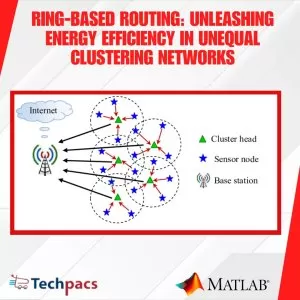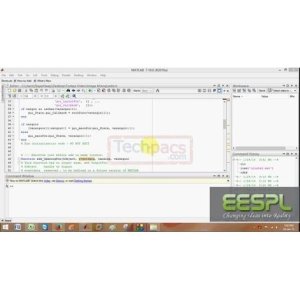Addressing Network Impacts on Control Systems through Neurofuzzy-PID Hybrid Optimization in Distributed Environments
Problem Definition
The challenges faced by network controllers in handling and controlling data are numerous and complex. Traditional control systems often struggle with making decisions in dynamic and distributed environments, leading to inefficiencies and ineffectiveness. One of the key limitations identified is the difficulty in handling new inputs that do not align with predefined rules, causing disruptions in the system's performance. The need for an intelligent control system that can adaptively respond to changing inputs and make appropriate decisions is clear in order to improve the efficiency and effectiveness of network control operations.
The lack of adaptability and decision-making capabilities in current control systems creates a major pain point for network controllers, as they are constantly faced with the challenge of managing and controlling data effectively.
With the increasing complexity and scale of modern networks, the need for intelligent systems that can handle varying inputs and make real-time decisions becomes evident. By addressing these limitations and problems, this project aims to develop a solution that can enhance the decision-making capabilities of network controllers and improve the overall performance of network control operations.
Objective
The objective of this project is to develop an intelligent control system utilizing neurofuzzy logic with a PID controller and hybrid optimization algorithms to improve the efficiency and effectiveness of network control operations. By addressing the limitations of traditional control systems in handling dynamic and distributed environments, the research aims to provide a more adaptive solution that can make real-time decisions based on varying inputs. Through the evaluation of system parameters and performance under different scenarios, the project seeks to demonstrate the superiority of the proposed neurofuzzy-PID system in enhancing decision-making processes and system performance. The ultimate goal is to contribute to the advancement of network control technology by developing a more intelligent and efficient system capable of managing varying inputs and optimizing system parameters for improved overall performance.
Proposed Work
The proposed research aims to address the gap in existing network control systems by introducing an intelligent control system that can adapt and make decisions based on varying inputs. By incorporating neurofuzzy logic with a PID controller and utilizing hybrid optimization algorithms, the project seeks to improve the overall efficiency and effectiveness of network controllers. The approach taken in the research involves evaluating system parameters and performance under different scenarios to validate the effectiveness of the proposed neurofuzzy-PID system. The choice of using MATLAB as the software for this project enables a seamless implementation and analysis of the control system's performance.
By leveraging the neurofuzzy-PID system in conjunction with hybrid optimization algorithms, the research aims to provide a more robust and adaptive solution to the challenges faced by network controllers.
The rationale behind selecting these techniques lies in their ability to enhance decision-making processes and improve system performance in dynamic environments. By evaluating the system's response in terms of overshoot, settling time, and rise time, the project aims to demonstrate the superiority of the proposed approach in comparison to traditional control systems. Overall, the research seeks to contribute to the advancement of network control technology by developing a more intelligent and efficient system that can effectively manage varying inputs and optimize system parameters for improved performance.
Application Area for Industry
This project's proposed solutions can be utilized in various industrial sectors such as manufacturing, energy management, telecommunications, and transportation. In manufacturing, the intelligent control system can optimize production processes by adapting to dynamic conditions and improving efficiency. Energy management companies can benefit from the neurofuzzy-PID system in optimizing power generation and distribution, ensuring reliable and cost-effective operations. In telecommunications, the system can be used to improve network performance and reliability by making adaptive decisions based on changing data inputs. Lastly, in the transportation sector, this solution can enhance traffic control systems, leading to smoother traffic flow and reduced congestion.
The main benefit of implementing these solutions in different industries is the ability to address the specific challenges faced by each sector. For example, manufacturing companies can improve productivity and reduce downtime by deploying the adaptive control system in their production lines. Energy management firms can optimize energy consumption and reduce costs by implementing the neurofuzzy-PID setup in their grids. Telecommunications companies can enhance network efficiency and customer satisfaction by utilizing the intelligent control system to make real-time decisions. Overall, the innovative approach of combining neurofuzzy logic with a PID controller and hybrid optimization algorithms offers a versatile solution that can be tailored to meet the unique needs of various industrial domains.
Application Area for Academics
The proposed project has significant potential to enrich academic research, education, and training in the field of control systems and optimization. By incorporating neurofuzzy logic, PID controllers, and hybrid optimization algorithms, researchers can explore innovative methods for handling and controlling data in dynamic and distributed environments. This approach offers a more adaptable and intelligent control system that can make decisions based on varying inputs, enhancing efficiency and effectiveness.
The use of MATLAB for software implementation allows researchers, MTech students, and PhD scholars to access the code and literature of this project for their work. By studying the neurofuzzy-PID system and the integration of GWO and Firefly Algorithm, students can gain insights into advanced control systems and optimization techniques.
This knowledge can be applied to a wide range of research domains, including image processing, system parameter optimization, and decision-making in complex environments.
The relevance of this project lies in its applicability to various fields where adaptive control systems are needed, such as autonomous vehicles, industrial automation, and robotics. Researchers can further explore the potential applications of the neurofuzzy-PID system and hybrid optimization algorithms in these domains, paving the way for future advancements in intelligent control systems.
In conclusion, the proposed project offers a valuable contribution to academic research by introducing innovative methods for data analysis, simulations, and control in dynamic environments. By leveraging neurofuzzy logic, PID controllers, and hybrid optimization algorithms, researchers can explore new avenues for enhancing decision-making and system efficiency.
The code and literature of this project can serve as a valuable resource for students and scholars seeking to expand their knowledge and expertise in control systems and optimization.
Reference for future scope:
As a future scope, researchers can further investigate the performance of the neurofuzzy-PID system with different optimization algorithms and apply it to real-world control applications. Additionally, studying the impact of system delays on the performance of the system can lead to further advancements in adaptive control systems. By expanding the research to include more complex scenarios and integrating additional technologies, researchers can continue to push the boundaries of intelligent control systems and optimization techniques.
Algorithms Used
Two algorithms prominently featured in this research are the Grey Wolf Optimization (GWO) and Firefly Algorithm. GWO mimics the leadership hierarchy and hunting mechanism of grey wolves in nature, is used for multilevel thresholding in image processing. While the Firefly Algorithm uses the behavior of fireflies to solve optimization problems. Both are used in a hybrid methodology to enhance system parameter definition. Additionally, Adaptive Neuro-Fuzzy Inference System (ANFIS) is used, a kind of artificial neural network that is based on Takagi–Sugeno fuzzy inference system.
The proposed solution involves the application of neurofuzzy logic in combination with a PID controller, a setup designed to adapt and make decisions based on varying inputs. An additional enhancement applies hybrid optimization algorithms (Grey Wolf Optimization and Firefly Algorithm) to define system parameters more effectively than earlier models. Two scenarios were considered: with and without delay. The validity of the approach was determined by evaluating the overshoot, settling time, and rise time. The main innovation is the neurofuzzy-PID system, which enhances the decision-making ability, making the system adaptable and effective enough to control the network.
Keywords
SEO-optimized keywords: Network Controllers, Intelligent Control Systems, Neurofuzzy Logic, PID Controllers, Grey Wolf Optimization, Firefly Algorithm, System Parameters, System Adaptability, Overshoot Reduction, Rise Time, Settling Time, Delay, Optimization Algorithms, ANFIS, Distributed Environment Control Systems, Decision-making, Adaptive Control System, Hybrid Optimization, MATLAB Software.
SEO Tags
Network Controllers, Intelligent Control Systems, Neurofuzzy Logic, PID Controllers, Grey Wolf Optimization, Firefly Algorithm, Parameter Definition, System Adaptability, Overshoot Reduction, Rise Time, Settling Time, Delay, Optimization Algorithms, ANFIS, Distributed Environment Control Systems, MATLAB Software, Decision-making in Dynamic Environments, Adaptive Control System, Hybrid Optimization Algorithms, Network Control Strategies, Efficient System Parameters, Network Control Efficiency, PhD Research Topic, MTech Research Topic, Adaptive Decision-making Systems, Network Control Efficiency.
| Shipping Cost |
|
No reviews found!


















































No comments found for this product. Be the first to comment!